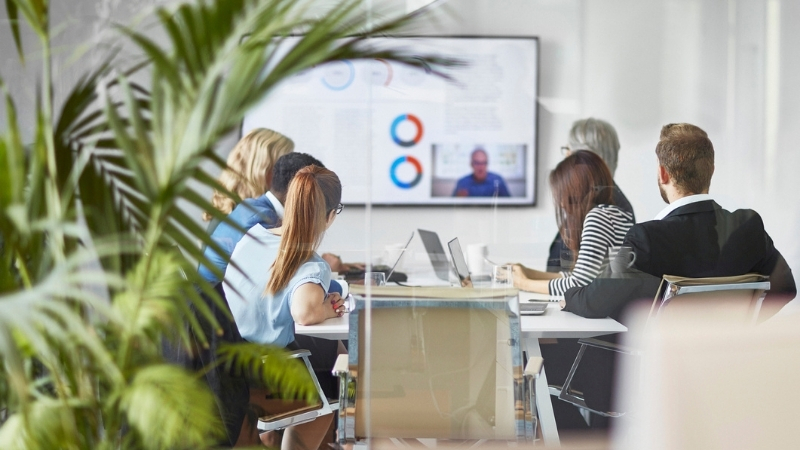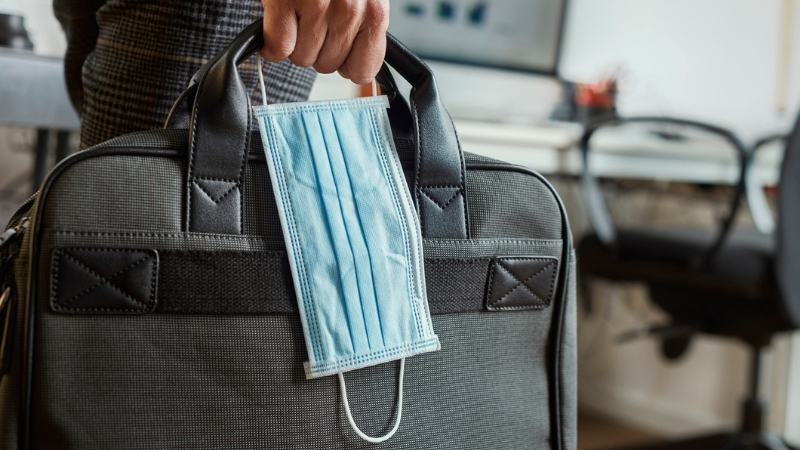Interested in a Corporate TUD+ Membership?Speak to our team today for a special end-of-year discountSpeak to our team for an end-of-year discount
Resources
Newsletter
Stay up to date and with the latest news, projects, deals and features.
SubscribeIt is clear to all of us that corporate office space needs have changed as a result of the Covid-19 pandemic.
Although many offices have started re-opening, a significant portion of the workforce is still choosing to work from home, apparently motivated not only by health and safety concerns, but also a desire to save on commuting time and achieve a better work-life balance.
As businesses recognise that people can work flexibly, and the working week becomes less structured, we will see continued change in corporate office space.
Flexible office providers are poised to provide “ready to move in” spaces that suit a downsized office, without the usual capital costs.
As director of design and consultancy firm Arcadis, here is my take on what the real “new office normal” is going to be, and how best to manage changing office needs as workspace requirements evolve.

Covid-19 has forced all businesses to adopt new technologies and even those who never thought they could work remotely have managed to do so.
Everyone is now far more confident using web conferencing, file sharing and interactive presentation software.
Some people have even been given a laptop for the very first time and are only now realising the mobility opportunities at their disposal.
So, despite many companies offering employees the option to return to the office in phases, the actual number has been low.
Across our Consult Australia cohort, take-up has typically been no more than 20 per cent, and those who are using the office are doing so mainly because they need to collaborate in-person to solve a complex problem within tight timelines.
An observation from remote working, is that little has been done to replace the casual chats at the printer with colleagues outside of your direct team—the type of conversations that jog someone’s mind about an opportunity they’ve heard or a titbit that proves valuable insight.
Communication now tends to be specific and focused.
As such, it is likely that in time, the office will evolve as more of a “people hub” where you meet clients and colleagues when you want to make an impression or provide a personal touch.
A place to get your “people fix”, feed off the energy in the appropriately-spaced room and get the instant feedback and gratification that you only really get via facial expressions and body language.
It may mean you only “go” to work once a week, or one week in every four—and therefore a new type of space is needed.

Businesses hoping to encourage their people back to the office need to first and foremost ensure they are comfortable returning to the office environment.
Health and safety matters must be addressed confidently with cleaning regimes, desk spacing, and appropriate management and enforcement of what has been put in place: employees need to know that leadership has their wellbeing at the front of their mind.
Arcadis has provided all our people with washable face masks, for instance, and for those wanting to return to the office, we have a desk booking app to effectively manage the reduced availability of desks.
Regular engagement with teams to discern evolving needs is vital to develop flexible work solutions, constantly evolving the employee proposition as part of the war for talent.
Arcadis have created an insight generator for our UK market which will be scalable for Australian interests, and helps leaders ascertain employee confidence in organisational leadership and Covid-19 crisis handling as well as sentiment around returning to the office.
The insight generator also maps prospective solutions (physical and virtual) to workplace facilities, to align with the business’ evolving workspace needs.
Arcadis can also harness techniques normally applied to infrastructure assets to help clients better understand asset criticality, as priorities may have changed: this includes looking at asset data management and ensuring it, too, is treated as a critical asset.
Every asset now needs to work that little bit harder for its owner-occupier, so we are developing digital twins to remotely monitor assets which could help reduce the number of physical maintenance visits over time resulting in reduced exposure risk and maintenance costs.
This is being applied to the office environment, where a digital representation of how the space is being used can result in data-driven decisions to repurpose the space.
Would you like some guidance on how to navigate the new ways of working for your business? Feel free to get in touch with me to discuss your concerns and how Arcadis can help.
Gordon Baxendale is the business leader – Program, Cost and Asset Management with Arcadis, where he has worked in various sectors, predominantly Retail, Central Government, Commercial Developers, Corporate Real Estate, Financial Institutions and the Telecoms sector.
The Urban Developer is proud to partner with Arcadis to deliver this article to you. In doing so, we can continue to publish our free daily news, information, insights and opinion to you, our valued readers.